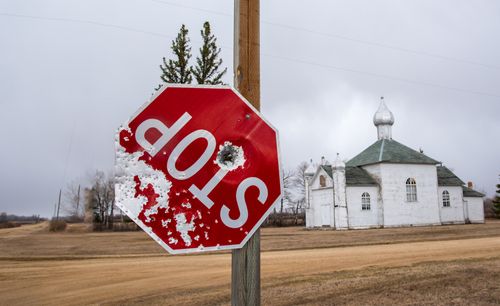 Multiple of acts of violence occur every day throughout the world. It can be overwhelming to even think about, much less discuss with others. However, it is important that the church not shy away from hard topics, particularly when they cause so much grief. The church should give people an opportunity to process these feelings rather than be a place where they feel like they have to pretend that everything is fine.
Multiple of acts of violence occur every day throughout the world. It can be overwhelming to even think about, much less discuss with others. However, it is important that the church not shy away from hard topics, particularly when they cause so much grief. The church should give people an opportunity to process these feelings rather than be a place where they feel like they have to pretend that everything is fine.
In 2013, the ELCA adopted an updated statement on its commitment to addressing church violence through the work of its churches:
- Worship
- Education
- Advocacy
- Action
Many other churches have made similar statements. What specific things can churches do, though? There are several ways your church can address the topic of violence.
Be Vocal About Specific Events
It's impossible to know about every tragedy that happens, but that doesn't need to deter you from acknowledging those of which you are aware. Chances are good that if you know about certain events, there is someone in your congregation who is grieved by them. Include a list of acts of violence that have occurred during the preceding week in your corporate prayers during every service and in any printed prayers you send out to members. The person or persons who manage your social media accounts should also mention major events that occur, especially those that are closest to home. Pervasive violence, particularly that which is motivated by hate for specific groups of people, is not something the church should be silent about.
Include Anti-Violence Themes in Services
Acknowledgement is crucial, but speaking out against violent acts has to go further. Every gathering is an opportunity to fuel action by not only raising awareness but also encouraging the work of peace. Choose songs that include exhortations to resist oppression and abuse in the lyrics. Discuss specific things that members can do to make peace in the world during sermons.
Encourage Members To Get Involved
A commitment to anti-oppression and peace can easily turn into a full-time job. Church leaders are likely to burn out quickly if they're handling all the education, keeping up with current events, speaking out and supporting programs that prevent violence. There is definitely enough work to go around, so remember to share the burden with congregants. If you have members who love to organize, mobilize them to be your representatives in the community. Those who have significant financial resources can find ways to fund peace-making programs. Everyone can commit to keeping each other informed about what's going on in the world. All members have a role to play.
Support Community Efforts To Address Underlying Issues
Although violent crime can occur anywhere, there are reasons people assume that certain neighborhoods are safer than others. While some of these assumptions are likely rooted in prejudice, crime statistics often show that there is an element of truth to them. A consistent factor in areas that report a lower rate of violent crimes is the availability of reliable community resources. After-school programs for youth, affordable health care, accessibility to nutritious food and safe havens for those who need protection are all services that every faith organization in the community should be an integral part of providing. If your church does not have the resources to host these programs on its own, leaders and enthusiastic volunteers can find and support groups in the community that are already doing the work.
There is so much violence in the world that it may seem like an insurmountable problem. However, just as every problem has a cause, it also has a solution. Faith communities have the opportunity and responsibility to practice the peace and love they preach when senseless attacks occur.